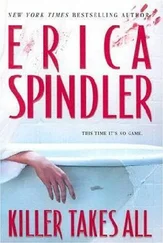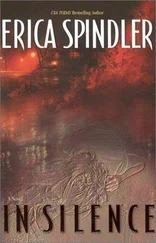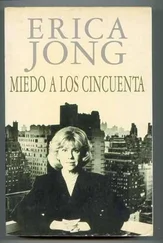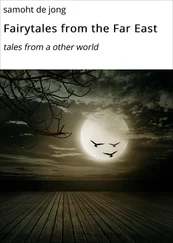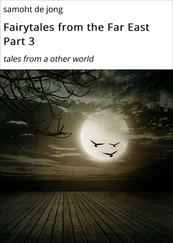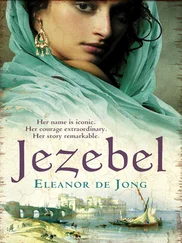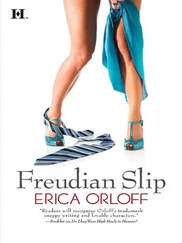But nothing came of anything. Oh there were cuddles in the backs of cars. And long drunken kisses in roachy New York kitchens over pitchers of warm martinis. And there were flirtations over fattening expense-account lunches. And pinches in the stacks of Butler Library. And embraces after poetry readings. And hand squeezes at gallery openings. And long meaningful telephone conversations and letters heavy with double entendres. There were even some frank and open propositions (usually from men who didn’t attract me at all). But nothing came of anything. I would go home instead, and write poems to the man I really loved (whoever he might be). After all, I had screwed enough guys to know that one prick wasn’t that different from the next. So what was I looking for? And why was I so restless? Maybe I resisted consummating any of these flirtations because I knew that the man I really wanted would continue to elude me and I would only wind up disappointed. But who was the man I really wanted? All I knew was that I had been desperately searching for him from the age of sixteen on.
When I was sixteen and called myself a Fabian socialist, when I was sixteen and refused to pet with boys who liked Ike, when I was sixteen and cried into the Rubaiyat, when I was sixteen and cried into the sonnets of Edna St. Vincent Millay-I used to dream of a perfect man whose mind and body were equally fuckable. He had a face like Paul Newman and a voice like Dylan Thomas. He had a body like Michelangelo’s David (“with those rippling little marble muscles,” as I used to tell my best friend Pia Wittkin, whose favorite male statue was Discobolus; we were both avid students of art history). He had a mind like George Bernard Shaw (or, at least, what my sixteen-year-old mind conceived of as George Bernard Shaw’s mind). He loved Rachmaninoff’s Third Piano Concerto and Frank Sinatra’s “In the Wee Small Hours of the Morning” above all other mortal music. He shared my passion for unicorn tapestries, Beat the Devil, the Cloisters, Simone de Beauvoir’s Second Sex, witchcraft, and chocolate mousse. He shared my contempt for Senator Joe McCarthy, Elvis Presley, and my philistine parents. I never met him. At sixteen, my not meeting him seemed unbearable. Later I learned to take the cash and let the credit go, nor heed the rumble of a distant drum. The contrast between my fantasies (Paul Newman, Laurence Olivier, Humphrey Bogart, Michelangelo’s David) and the pimply faced adolescent boys I knew was laughable. Only I cried. And so did Pia. We commiserated in her parent’s gloomy apartment on Riverside Drive.
“I imagine him as being very-you know-sort of a cross between Laurence Olivier in Hamlet and Humphrey Bogart in Beat the Devil-with very savage white teeth, and an absolutely fantastic body-sort of like the Discobolus.” She indicated her own rather well-upholstered belly.
“What are you wearing?” I asked.
“I see it as a sort of-you know-medieval wedding. I have this pointed white hat with a chiffon veil floating from it-and a red velvet dress-maybe wine-and very pointed shoes.” She drew the shoes for me with her black-inked Rapidograph pen. Then she drew the whole outfit-an empire-waisted gown with a very low neck and long tight sleeves. It was being modeled by a gorgeous creature whose cleavage swelled up out of the gown voluptuously. (At the time, Pia herself was overweight but flat-chested.)
“I see the whole thing as taking place in the Cloisters,” she went on. “I’m sure you could rent the Cloisters if you knew the right people.”
“Where would you live?”
“Well, I see this really weird old house in Vermont-an abandoned monastery or abbey or something…” (Neither of us questioned the fact that there were abandoned monasteries and abbeys in Vermont.) “ … With these extremely rustic floorboards and a skylight built into the roof. It would be sort of one big room which would be a studio and a bedroom with a big round bed under the skylight-and black satin sheets. And we’d have lots of Siamese cats-named things like John Donne and Maud Gonne and Dylan-you know.”
I did, or at least I thought I did.
“Anyway…” she continued, “… I see myself sort of as a cross between Gina Lollobrigida and Sophia Loren…” (Pia had dark hair.) “… What do you think?” She swept her greasy brown hair up on her head and held it there as she sucked in her cheeks and widened her large blue eyes at me.
“I sort of think you’re more the Anna Magnani type,” I said, “earthy and basic, but terribly sensual.”
“Maybe…” she said thoughtfully. She was posing in front of the mirror.
“Oh, it’s disgusting,” she said after a while. “We never meet anyone the least bit worthy of us.” And she made a hideous face.
During our senior year at Music and Art, Pia and I opened our hostile minority of two to include a few other selected misfits. That was the closest we ever came to having a crowd. The group included a bosomy girl named Nina Non-off whose claims to distinction were her necrophiliac passion for the ghost of Dylan Thomas, her supposed knowledge of Chinese and Japanese profanities, and her “contact” with a real Yalie (visions of football weekends for us all-but unfortunately the “contact” turned out to be a friend of a friend of an acquaintance of her brother’s). Nina’s mother also had a huge collection of “sex books” among which we included Coming of Age in Samoa and Sex and Temperament; any book with the word puberty in it was OK. And finally there was the sheer class of Nina’s father having created the Blue Wasp Series for radio in the 1940s. Jill Siegel, on the other hand, was a member of the group not so much for class as out of charity. She had little to contribute in the way of sophistication, but made up for this by means of her blind loyalty to us and the flattering way in which she aped our most florid affectations. An on-and-off member was Grace Baratto-a music major whose intellect we did not respect but who told fantastic stories about her sexual exploits. Though she denied it, we secretly told each other that she had probably “gone all the way.” “At the very least, she’s a demi-vierge,” Pia said. I nodded knowingly. Later I looked it up.
There were only two boys who were allowed into the group, and we treated them as scornfully as possible to make sure they understood they were only there on sufferance. Since they were our classmates and not “college men,” we wanted it clear that we would only consider them as “pla-tonic” friends. John Stock was the son of old friends of my parents. He was chubby and blond and wrote short stories. His favorite phrase was “paroxysms of passion.” It cropped up at least once every story he wrote. Ron Perkoff (whom we, of course, called Jerkoff) was in love with me. Tall, skinny, with a huge hooked nose and a truly incredible assortment of blackheads and pimples (which I longed to squeeze), he was an Anglophile. He subscribed to Punch and the airmail edition of the Manchester Guardian, carried a tightly rolled umbrella (in all kinds of weather), pronounced “banal” (one of his favorite words) with the accent on the second syllable, and peppered his speech with phrases like “bloody rotter” and “mucking about.”
After the agony of college boards and waiting for letters of acceptance was over, the six of us mucked about chiefly in my parents’ apartment as we whiled away the long idle spring term waiting impatiently for graduation. Sitting on the floor of the living room, we consumed tons of fruit, cheese, peanut-butter sandwiches and cookies, listened to Frank Sinatra albums, and wrote communal epics which we tried to make as pornographic as our limited experience would allow. We composed on my portable Olivetti which we passed around from lap to lap. Whenever John was there, paroxysms of passion were the order of the day.
Читать дальше
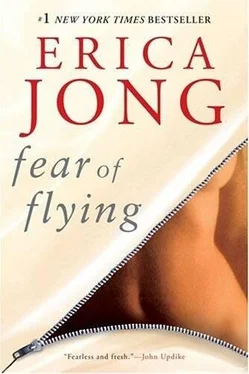
![Brian Jacques - [Flying Dutchman 01] - Castaways of the Flying Dutchman](/books/128851/brian-jacques-flying-dutchman-01-thumb.webp)


